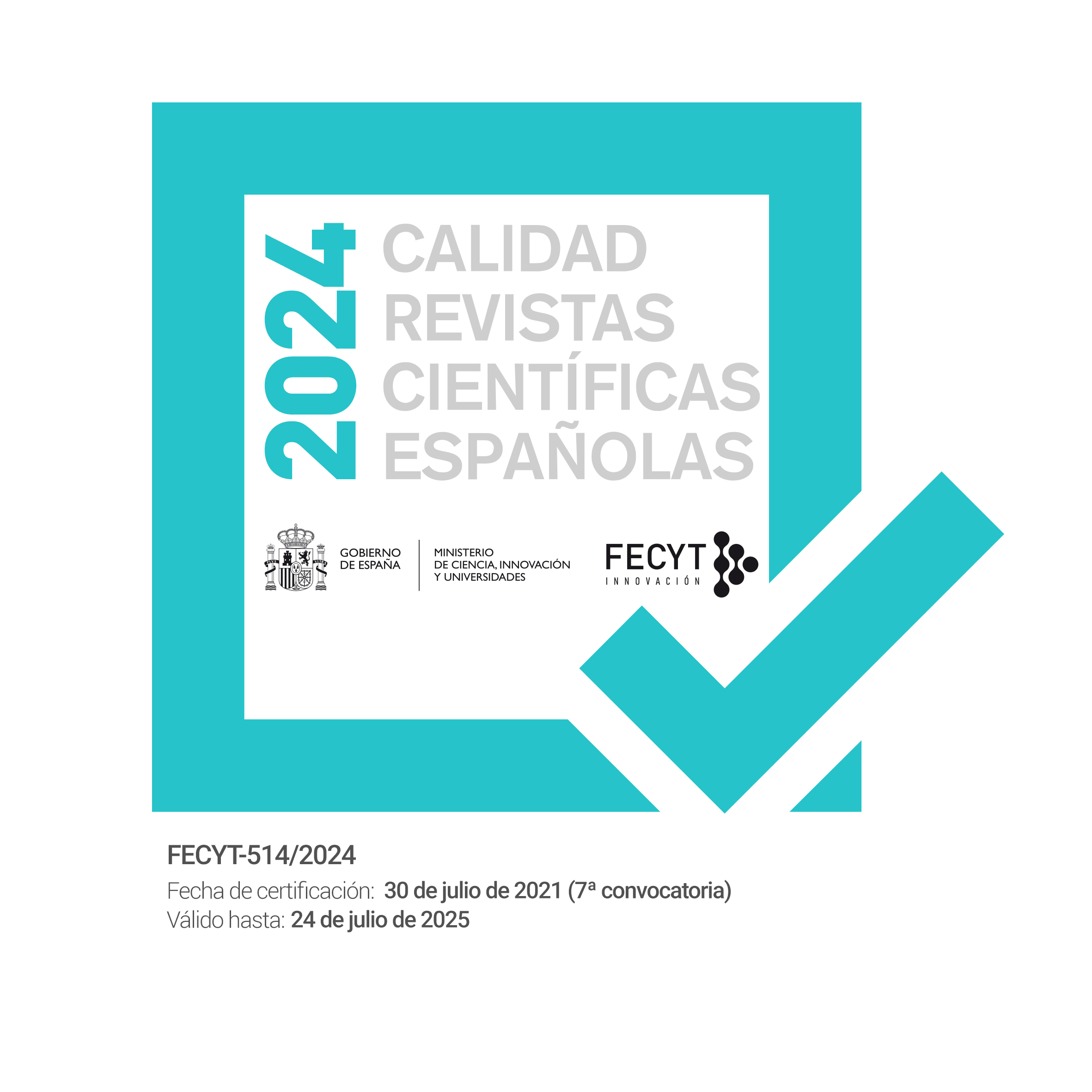Slavery as National Trauma in Richard Ford's 'Everything Could Be Worse'
Keywords:
crypt, phantom, postmemory, race, Richard Ford, slavery, traumaAbstract
This article explores slavery as a national trauma in Richard Ford’s 2014 novella “Everything Could Be Worse.” First, slavery is conceptualized as trauma, emphasizing its role in the formation of contemporary Black identity in the United States. The categories of ‘postmemory’ (Marianne Hirsch), ‘phantom’ and ‘crypt’ (Nicolas Abraham and Maria Torok) are presented, as they facilitate the study of multigenerational oppression and the transmission of trauma. Then, a brief discussion of the race question in Ford’s fiction and nonfiction contextualizes the analysis of the novella. In “Everything Could Be Worse,” which resembles a ghost story as well as a session of psychoanalysis, the intergenerational effects of trauma affect the descendants of both victims and perpetrators of slavery. Finally, it is concluded that, despite certain shortcomings, Ford’s approach to racial difference is becoming increasingly sophisticated.
Downloads
References
ABRAHAM, Nicolas. “Notes on the Phantom: A Complement to Freud’s Metapsychology.” The Shell and the Kernel. Volume I, by Nicolas Abraham and Maria Torok, edited, translated, and with an introduction by Nicholas T. Rand, The University of Chicago Press, 1994, pp. 171-6.
ABRAHAM, Nicolas, and Maria Torok. “’The Lost Object—Me:’ Notes on Endocryptic Identification.” The Shell and the Kernel. Volume I, by Nicolas Abraham and Maria Torok, edited, translated, and with an introduction by Nicholas T. Rand, The University of Chicago Press, 1994, pp. 139-56.
ALEXANDER, Jeffrey C. “Toward a Theory of Cultural Trauma.” Cultural Trauma and Collective Identity, edited by Jeffrey C. Alexander et al., University of California Press, 2004, pp. 1-30.
BERLANT, Lauren. “Trauma and Ineloquence.” Cultural Values, vol. 5, no. 1, 2001, pp. 41-58.
BERLIN, Ira. Generations of Captivity: A History of African-American Slaves. Harvard University Press, 2003.
BLACKMON, Douglas. Slavery by Another Name: The Re-Enslavement of Black Americans from the Civil War to World War II. Anchor Books, 2008.
BONILLA-SILVA, Eduardo. 2003. Racism without Racists: Color-Blind Racism and the Persistence of Racial Inequality in America. Rowman & Littlefield, 2018.
BROECK, Sabine. “Legacies of Enslavism and White Abjectorship.” Postcoloniality-Decoloniality-Black Critique: Joints and Fissures, edited by Sabine Broeck and Carsten Junker, Campus Verlag, 2014, pp. 109-28.
DERRIDA, Jacques. “¿Cómo no temblar?” Translated from French to Spanish by Esther Cohen. Acta Poetica, vol. 30, no. 2, 2009, pp. 21-34.
---. Foreword. “Fors: The Anglish Words of Nicolas Abraham and Maria Torok.” The Wolf Man’s Magic Word: A Cryptonymy, by Nicolas Abraham and Maria Torok, translated by Nicholas Rand, University of Minnesota Press, 1985, pp. xi-xlviii.
DUFFY, Brian. Morality, Identity and Narrative in the Fiction of Richard Ford. Rodopi, 2008.
DYER, Richard. White: Essays on Race and Culture. Routledge, 1997.
EYERMAN, Ron. Cultural Trauma: Slavery and the Formation of African American Identity. Cambridge University Press, 2003.
FORD, Richard. “Everything Could Be Worse.” Let Me Be Frank with You, Bloomsbury, 2014, pp. 63-111.
---. “In the Same Boat.” New York Times, 6 June 1999. https://www.nytimes.com/1999/06/06/magazine/in-the-same-boat.html?pagewanted=all&src=pm. Accessed 20 April 2021.
---. Independence Day. The Harvill Press, 1995.
---. “Richard Ford on Writing the New America.” Interview by Robert McCrum. BBC Radio 4 – America Rewritten, 21 Jan. 2017. https://www.bbc.co.uk/programmes/articles/2dCKkv1Xr0vMcJl0gw0nV3X/richard-ford-on-writing-the-new-america. Accessed 20 April 2021.
---. Sorry for Your Trouble. Bloomsbury, 2020.
---. The Lay of the Land. Bloomsbury, 2006.
---. The Sportswriter. Bloomsbury, 1986.
FRYD, Vivien Green. “Bearing Witness to the Trauma of Slavery in Kara Walker’s Videos: Testimony, Eight Possible Beginnings, and I Was Transported.” Continuum: Journal of Media & Cultural Studies, vol. 24, no. 1, 2010, pp. 145-59.
GOLDBERG, Jeffrey. “Illuminating the Whole American Idea: Introducing ‘Inheritance.’” The Atlantic, 9 Feb. 2021. https://www.theatlantic.com/magazine/archive/2021/03/the-atlantic-and-black-history/617784/. Accessed 20 April 2021.
GRAFF, Gilda. “The Intergenerational Trauma of Slavery and Its Aftereffects: The Question of Reparations.” The Journal of Psychohistory, vol. 44, no. 4, 2017, pp. 256-68.
---. “The Intergenerational Trauma of Slavery and Its Aftermath.” The Journal of Psychohistory, vol. 41, no. 3, 2014, pp. 181-97.
---. “The Name of the Game is Shame, Part II: From Slavery to Obama and Now Trump.” The Journal of Psychohistory, vol. 45, no. 3, 2018, pp. 154-62.
GUMP, Janice P. “Reality Matters: The Shadow of Trauma on African American Subjectivity.” Psychoanalytic Psychology, vol. 27, no. 1, 2010, pp. 42-54.
---. “The Presence of the Past: Transmission of Slavery’s Traumas.” Demons in the Consulting Room: Echoes of Genocides, Slavery, and Extreme Trauma in Psychoanalytic Practice, edited by Adrienne Harris et al., Routledge, 2017, pp. 159-78.
HIRSCH, Marianne. Family Frames: Photography, Narrative, and Postmemory. Harvard University Press, 1997.
---. “Surviving Images: Holocaust Photographs and the Work of Postmemory.” The Yale Journal of Criticism, vol. 14, no. 1, 2001, pp. 5-37.
LOEWALD, Hans. “On the Therapeutic Action of Psycho-Analysis.” The International Journal of Psychoanalysis, vol. 41, 1960, pp. 16-33.
MITCHELL, W. J. T. “Narrative, Memory, and Slavery.” Picture Theory: Essays on Verbal and Visual Representation, The University of Chicago Press, 1994, pp. 183-207.
RAND, Nicholas T. “Editor’s Note. Secrets and Posterity: The Theory of the Transgenerational Phantom.” The Shell and the Kernel. Volume I, by Nicolas Abraham and Maria Torok, edited, translated, and with an introduction by Nicholas T. Rand, The University of Chicago Press, 1994, pp. 165-9.
---. “Introduction: Renewals of Psychoanalysis.” The Shell and the Kernel. Volume I, by Nicolas Abraham and Maria Torok, edited, translated, and with an introduction by Nicholas T. Rand, The University of Chicago Press, 1994, pp. 1-22.
RUSHDY, Ashraf. Remembering Generations: Race and Family in Contemporary African American Fiction. The University of North Carolina Press, 2001.
SCHWAB, Gabriele. Haunting Legacies: Violent Histories and Transgenerational Trauma. Columbia University Press, 2010.
SEDGWICK, Eve Kosofsky. “Privilege of Unknowing: Diderot’s The Nun.” Tendencies, Routledge, 1994, pp. 23-50.
SHARMA, Swati. “Ta-Nehisi Coates on Cornell West’s One-Sided War.” The Atlantic, 17 Jan. 2018. https://www.theatlantic.com/entertainment/archive/2018/01/ta-nehisi-coates-cornel-west/550727/. Accessed 20 April 2021.
SILVERSTEIN, Jake. “Editor’s Note.” The 1619 Project. New York Times Magazine, 18 Aug. 2019, pp. 4-5.
WALKER, Elinor Ann. “An Interview with Richard Ford.” Conversations with Richard Ford, edited by Huey Guagliardo, University Press of Mississippi, 2001, pp. 131-46.
WEST, Cornell. “Ta-Nehisi Coates Is the Neoliberal Face of the Black Freedom Struggle.” The Guardian, 17 Dec. 2017. https://www.theguardian.com/commentisfree/2017/dec/17/ta-nehisi-coates-neoliberal-black-struggle-cornel-west. Accessed 20 April 2021.
WILKINS, Erica et al. “Residual Effects of Slavery: What Clinicians Need to Know.” Contemporary Family Therapy, vol. 35, 2013, pp. 14-28.















